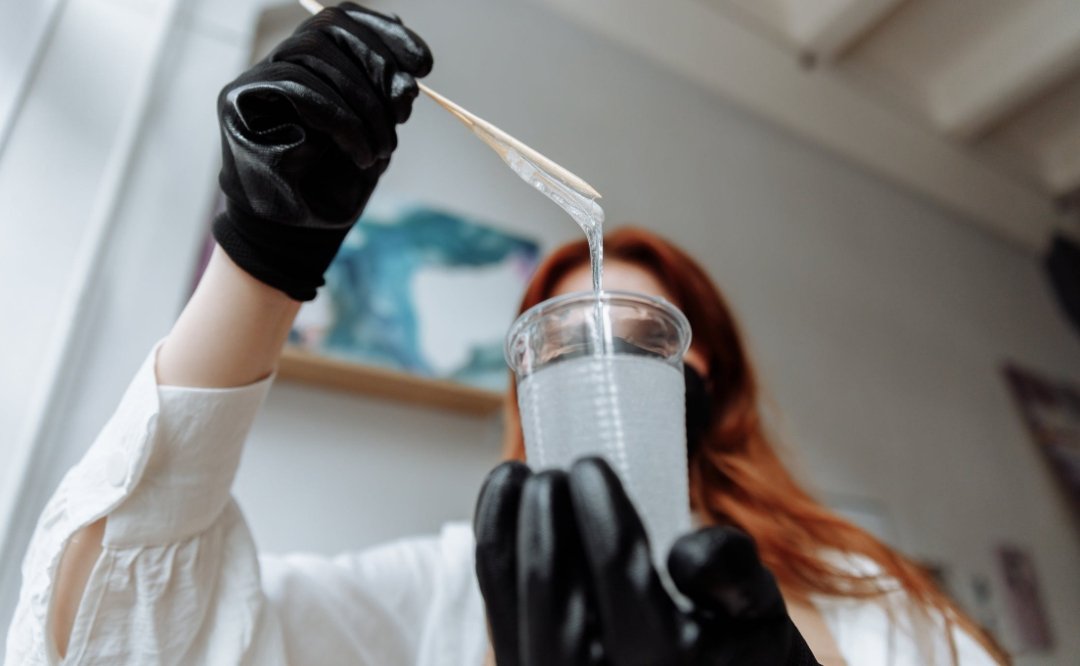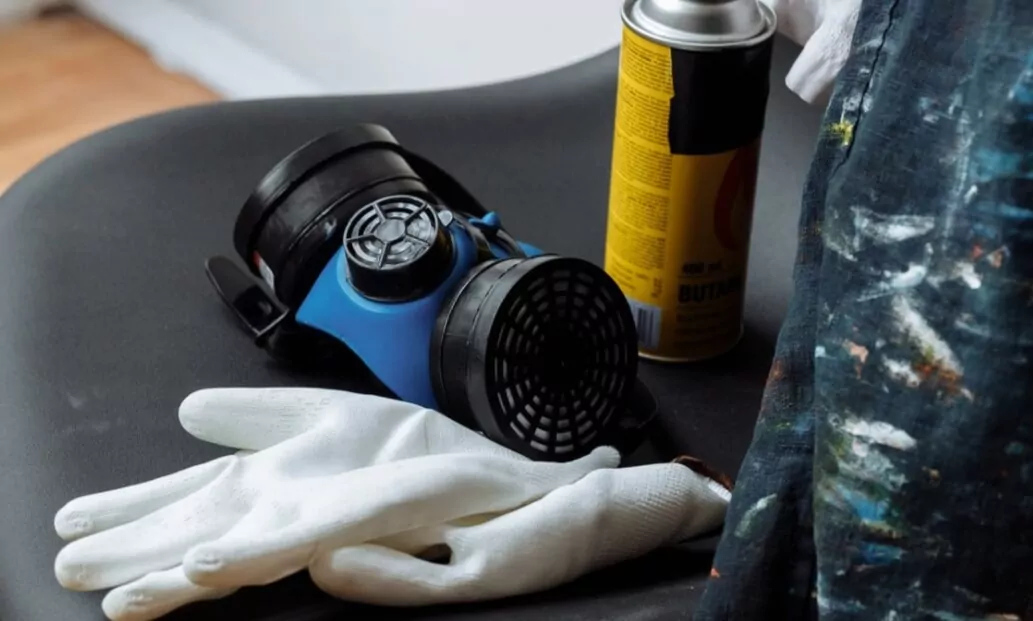Odds are that you’re here because you’ve found yourself wondering that very same question that most newbies do: is resin toxic? Don’t be embarrassed if this is why you’re here. Below is all you should know.
It’s not a stupid question, but rather, a very smart and important question, since working unsafely is going to end in disaster! All of the resin safety tips below are going to help you stay safe while you create stellar pieces.
Even if you aren’t sure, take a moment to read through this. I’m an experienced resin artist with over 5 years’ experience to work from. I want to make sure that every resin artist is fully equipped with the knowledge and skill to always keep safety top of mind.
Ready to get in the know about resin and its top safety details that you should always keep in mind? Here’s what you’ll learn:
- What is resin made of?
- Is resin toxic?
- Top tips for working safely with resin
Wear safety equipment
Work in a well-ventilated area
Don’t eat, drink, or smoke whilst working with resin
Keep the space kid- and animal-free
Store tools safely and separately
Use the right resin
Just like any kind of art, there’s going to be a right way to do things and a wrong way. In this case, the wrong way is going to be the dangerous way. You owe it to yourself and your long term health to do it the right way, okay? Spoiler alert: it’s not going to be that hard!
What is resin made of?
Resin is technically made of epoxy (assuming you are working with epoxy resin, of course). This is a natural organic compound, and it’s designed to be in liquid form so that you can pour it into your molds and make some incredible personalized crafts.
In order to use resin effectively, you need to mix it with a hardener (measured correctly) and this will create a chemical reaction that will bind the molecules of the hardener with the resin into a hard plastic substance. Think of it like a science experiment, but prettier!

Is resin toxic?
Technically, resin isn’t what you would call “toxic”. It’s on the same level as bleach or even windshield washer. However, it’s not exactly safe, either. It works by creating a chemical reaction, as you’ve learned, and this means that it can be dangerous if it’s not handled safely. While it’s not technically toxic, safety precautions are a must.
Dry resin is relatively harm-free, as the chemical reaction has already happened and the hardened resin itself (assuming it’s cured properly as directed) is going to be inert, chemically speaking.
All that said, again, you must be careful. You don’t want to try to eat resin or breathe in its scent, etc. As with any kind of serious material, you’ll want to treat it respectfully.
Top tips for working safety with resin
To help you always be careful, cautious and respectful for resin, here are some of the best safety tips that are waiting for you to always approach resin safely. Don’t worry, it won’t be all that difficult, a lot of it basic common sense!
Wear safety equipment
There are quite a few pieces of safety equipment that you’re going to want to focus on, but it prevents any accidental exposure, which is precisely the point. Your formal list includes:
- Safety gloves
- Eye protection
- Respirator mask
- Safety apron
One of the most important things to note, here, is gloves. Most people just grab disposable gloves, but using the right materials is critical to keep from creating a chemical reaction.
Nitrile gloves are going to be your chemically inert option that won’t cause any kind of reaction. Latex gloves are not recommended because they will react with your epoxy and it won’t cure properly!

Next, eye protection. You’ll want wraparound safety glasses or goggles. Make sure you pay attention to proper safety regulations and certifications so that you know your eyes are properly protected.
A respirator mask may be annoying — I know — but it’s critical. Epoxy, especially half-cured or when you are looking to sand it down, can be very dangerous. Inhaling particles is easy to do, and you need to have a proper protective layer in place!
An apron is also great, and you can also go with a long old shirt that will protect our skin from resin. Make sure the sleeves don’t get in your way, though, preferably look at ones that tuck into the cuffs of your gloves.
Work in a well-ventilated area
Whether it’s a ceiling fan, open windows to create a cross breeze, or some combination of those things, you’ll need to always make sure that your work space for mixing and working with epoxy resin is well-ventilated.
Please note that this is not a substitution for having a proper respirator mask! This is simply to cut down on fumes and over all odour!
Don’t eat, drink, or smoke whilst working with resin
Even if it’s a simple chip or bite of an apple, absolutely no eating, drinking or smoking in the room while you are working with resin! It makes it too easy for resin to get into your mouth, causing you to ingest it. If you are looking to take a break, take off all of your safety gear and leave the room entirely. Make sure you wash your hands thoroughly.
Keep the space kid- and animal-free
Animals and kids don’t really get the “no touching” rule, so it’s best to keep them far away from your resin, Not only is it potentially hazardous for their health, it also may mean that you’ll have tiny fingerprints or cat fur in your finished product!
If you are an expectant mother, you’ll want to stay very far away from resin, as there isn’t much information on any potential harm to your baby! Similarly, you’ll also want to stay away if you are breastfeed and/or caring for an infant directly.
Store tools safely and separately
Many people will use silicone molds for food, which is fine as long as you buy ones that are food-safe. However, you’ll also want to keep a very careful track of what you use for food and what you use for resin. Once something has had resn in it, you must never use it for food again. It doesn’t matter how well you wash it, resin is not safe to eat.
For this reason, keep all resin tools and supplies completely separate and far away from the kitchen!
Use the right resin
Another final detail to keep in mind is that you are using the right resin. Some are designed for thin layered projects, and others are designed for intense projects. You can get craft and non-craft resin. Then, of course, there’s the choice between epoxy resin and UV resin.
Always make sure that you check your project’s instructions for the kind of epoxy you should use, because choosing the one is going to be directly related to how successful the project is!
Working with resin and knowing how to do it safely is going to be easier than you thought, but also important to get right. Being a resin artist means adhering to the safety rules so that final effect is going to be well worth all of that precaution!


Thanks so much for this! I had to quit casting and fabricating silver due to respiratory danger,. Am considering lampwork and resin, but it sounds like they might be a bad choice as well. Are there any resin classes in Southern California?
If you get a skin reaction from epoxy is it best to stop using it.